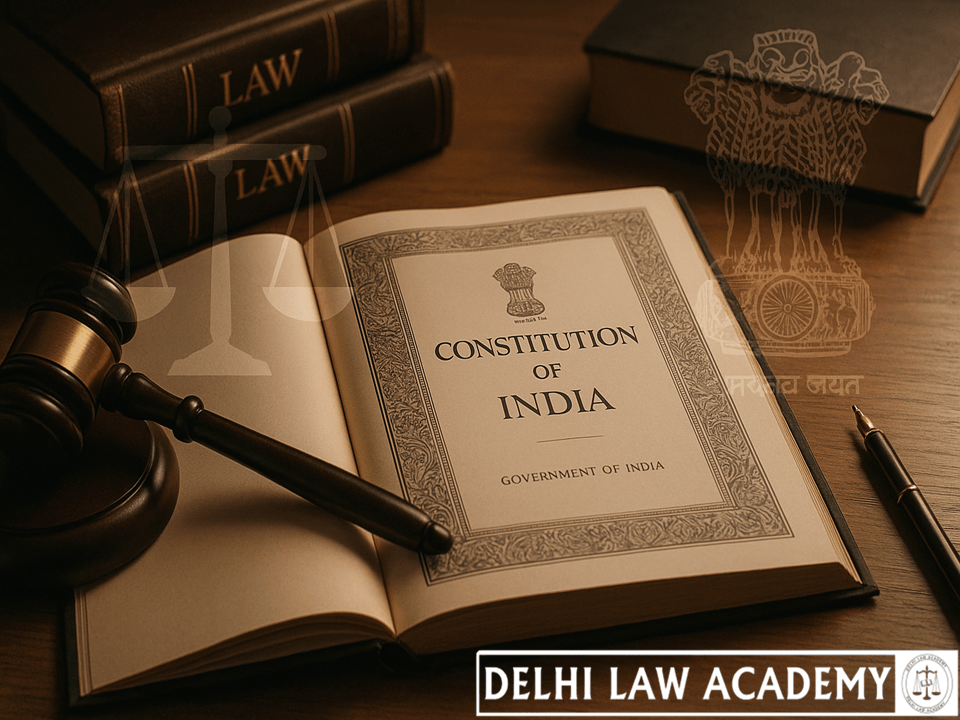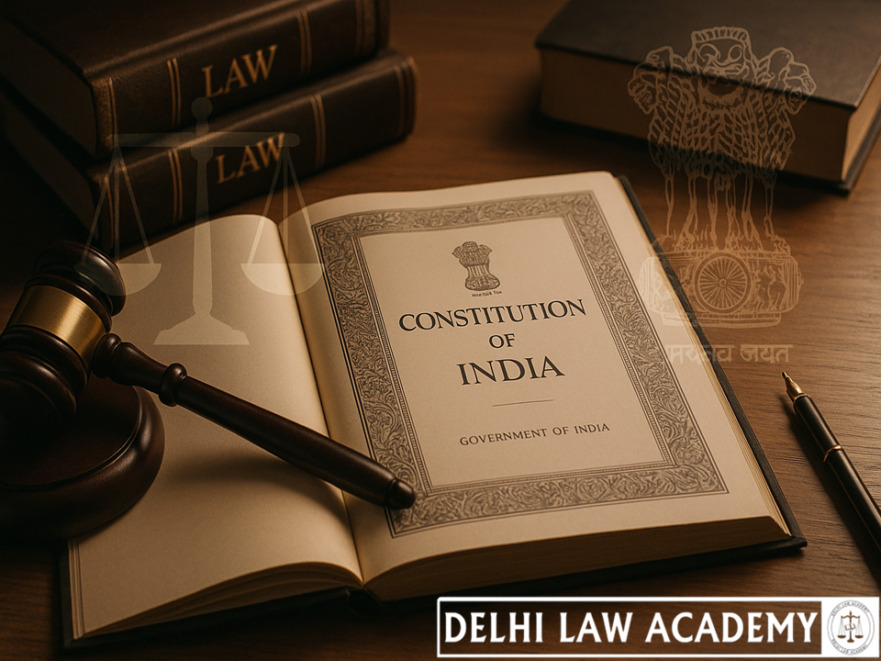
🏛️ Parliament (Articles 79–92)
Delhi Law Academy Jaipur — Notes for RJS, DJS, PCS(J) & Other Judicial Services
📘 Constitution of Parliament — Article 79
- Parliament consists of:
- The President
- House of People (Lok Sabha)
- Council of States (Rajya Sabha)
🏛️ Composition of Council of States — Article 80
- Council of States shall consist of:
- 12 members nominated by the President
- Maximum of 238 members representing States and Union Territories
- Allocation of seats in Rajya Sabha is specified in the Fourth Schedule.
- Nomination criteria: Special knowledge or practical experience in Literature, Science, Art, or Social Service.
- State representatives are elected by elected members of Legislative Assemblies.
- UT representatives are chosen as per law made by Parliament.
🗳️ Composition of Lok Sabha — Article 81
- Not more than 530 members chosen by direct election from States.
- Not more than 20 members to represent Union Territories.
- Seats allocated to each State in proportion to its population (as per 1971 Census).
- Each State divided into territorial constituencies with roughly equal population (as per 2001 Census).
📊 Readjustment after each census — Article 82
Allocation of seats and division of States into constituencies to be readjusted after every census by the Delimitation Commission.
No readjustment required till the first census after 2026.
🕒 Duration of Houses — Article 83
House of People: Normal term 5 years; can be dissolved sooner. Term may be extended by 1 year at a time during Emergency.
- 5th Lok Sabha term extended from March 1976 to March 1977 under the House of People (Extension of Duration) Act, 1976.
🧾 Qualification for Members — Article 84
- Must be a citizen of India.
- Must make an oath before the Election Commission.
- Minimum age: 30 years (Rajya Sabha), 25 years (Lok Sabha).
- Must meet qualifications prescribed by Parliament.
📅 Sessions of Parliament — Article 85
- President to summon Houses from time to time.
- No more than 6 months may elapse between two sessions.
- President may prorogue Houses or dissolve Lok Sabha.
🎙️ Right to Address and Send Messages — Article 86
- President may address either House.
- President may send messages relating to pending Bills or other matters.
🏛️ Special Address by President — Article 87
- President shall address both Houses assembled together at:
- The first session after each general election to Lok Sabha.
- The first session of each calendar year.
⚖️ Rights of Ministers — Article 88
- Every Minister has the right to speak and participate in either House but not to vote.
- The Attorney General of India has the same rights.
🪑 Officers of Council of States — Article 89
- Chairman: Vice-President of India (ex-officio).
- Deputy Chairman: chosen by the Council from among its members.
📜 Removal of Deputy Chairman — Article 90
- Vacates office if he ceases to be a member.
- Removed by resolution of the Council by a majority of all members, with 14 days’ notice.
👥 Article 91 & 92 — Chairman and Deputy Chairman Duties
- When the office of Chairman is vacant or Vice-President acts as President, duties are performed by the Deputy Chairman.
- If both are absent, duties performed by a member appointed by the President or by a person determined by the Council.
- During removal resolutions, the concerned officer shall not preside but may speak.
📘 Stay Ahead with Delhi Law Academy!
Get access to free monthly current affairs, read our insightful blogs,
and explore free study resources prepared by experts at DLA Jaipur. 🚀
💬 FAQs — Parliament (Articles 79–92)
Commonly asked questions on Articles 79–92 of the Constitution — covering Parliament, Rajya Sabha, Lok Sabha, and Presidential roles.
Together, they constitute the supreme legislative body of India.
Search term: “Composition of Indian Parliament Article 79 explained”
The President nominates 12 members having special knowledge or experience in literature, science, art, or social service.
Search term: “Article 80 Rajya Sabha composition and election process”
all chosen by direct election from territorial constituencies.
Search term: “Lok Sabha total seats Article 81 judiciary notes”
The Lok Sabha normally continues for five years unless dissolved sooner, though its term can be extended during a national emergency.
Search term: “Article 83 tenure of Rajya Sabha and Lok Sabha explained”
This ensures continuous legislative oversight and accountability.
Search term: “Maximum gap between two sessions of Parliament Article 85”
The Deputy Chairman is elected by the members of the Council and can be removed by a resolution passed by a majority of all the then members of the Council after a 14-day notice.
Search term: “Removal of Deputy Chairman Rajya Sabha Article 90”
📘 For more Constitution-based Judiciary Notes, visit
Delhi Law Academy Jaipur
Contact us
📍 Delhi Law Academy – Jaipur Branch
6C, Tower 2, Coaching Hub, Pratap Nagar, Jaipur – 302033
📞 Phone:
+91 9911916552
+91 8447285606
✉️ Email:
contactus@delhilawacademy.com

